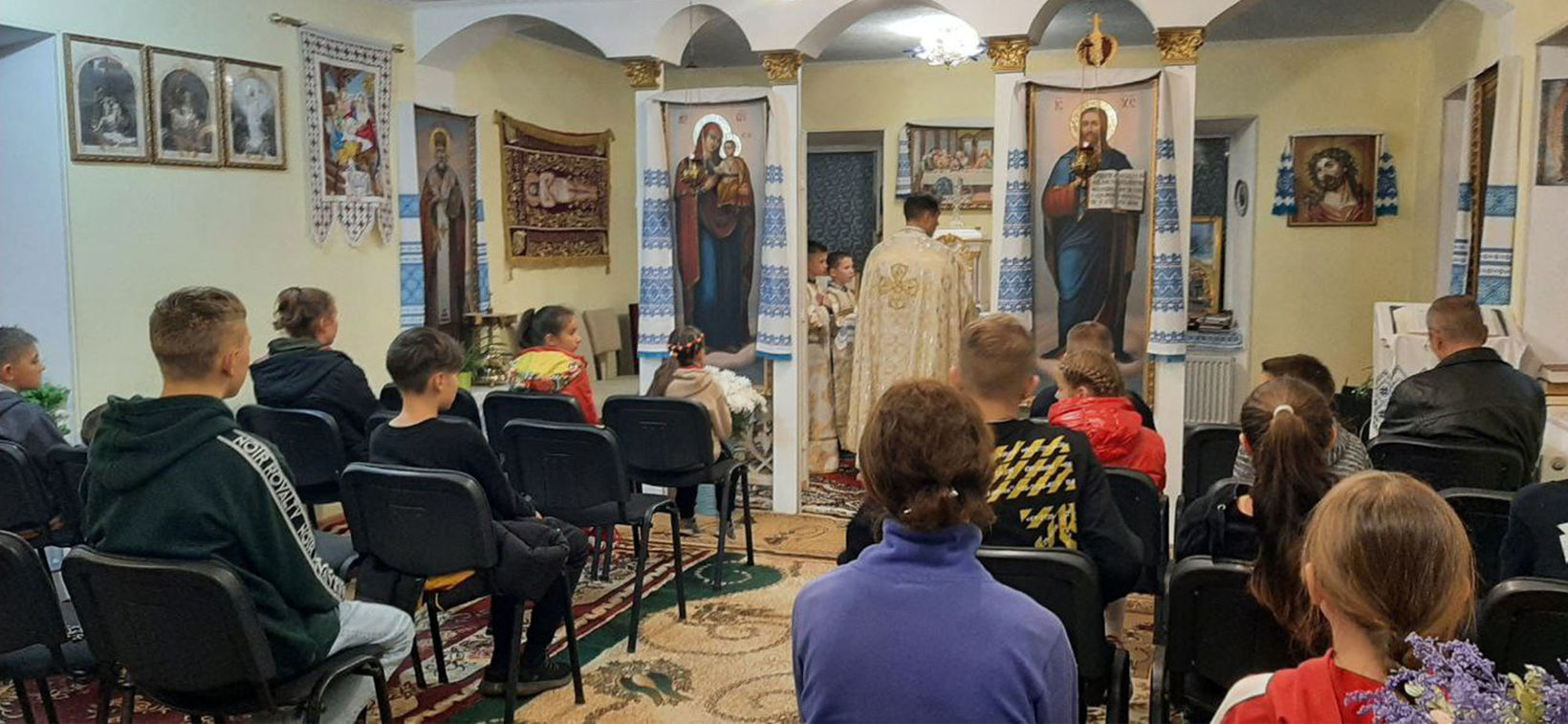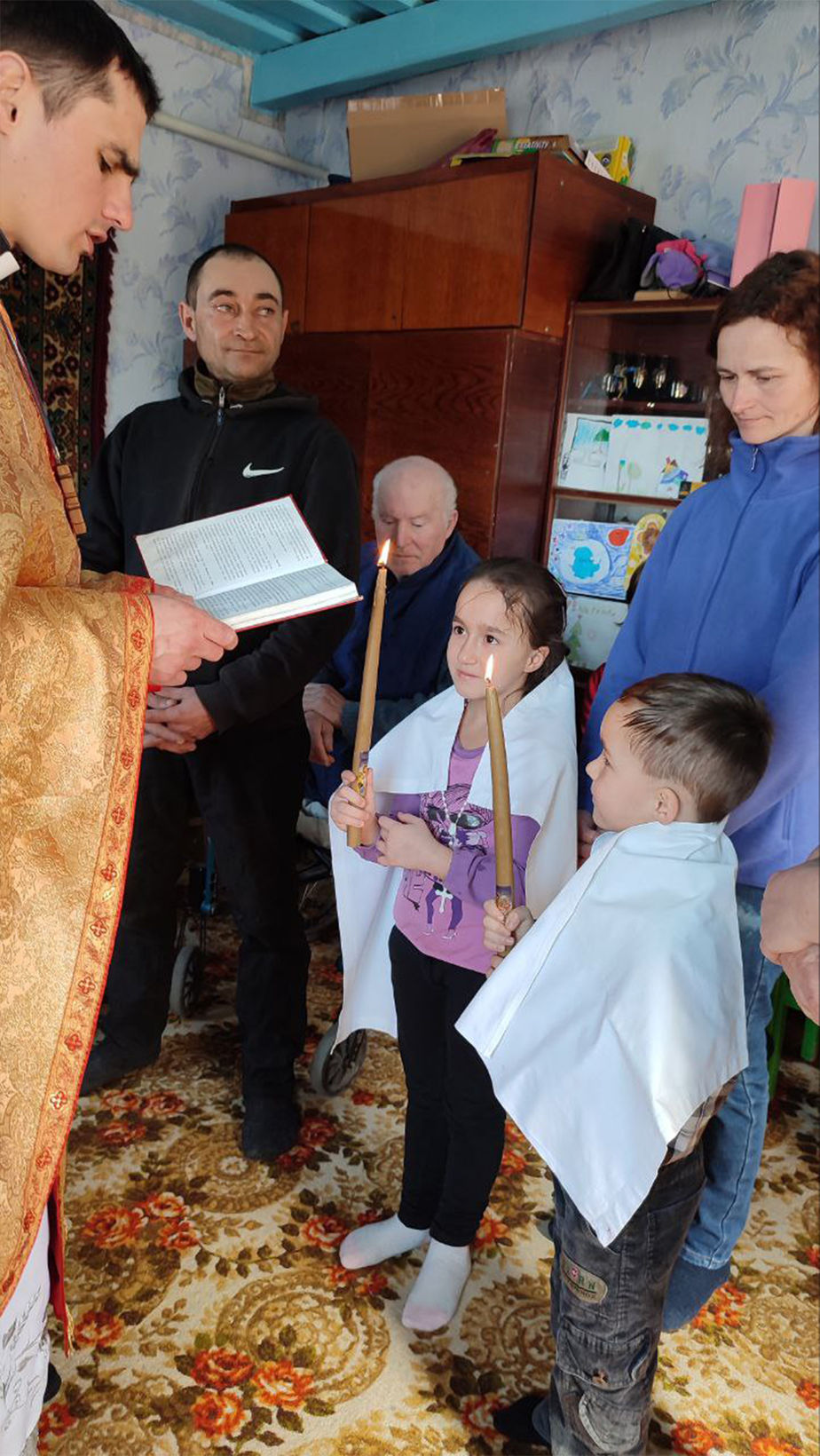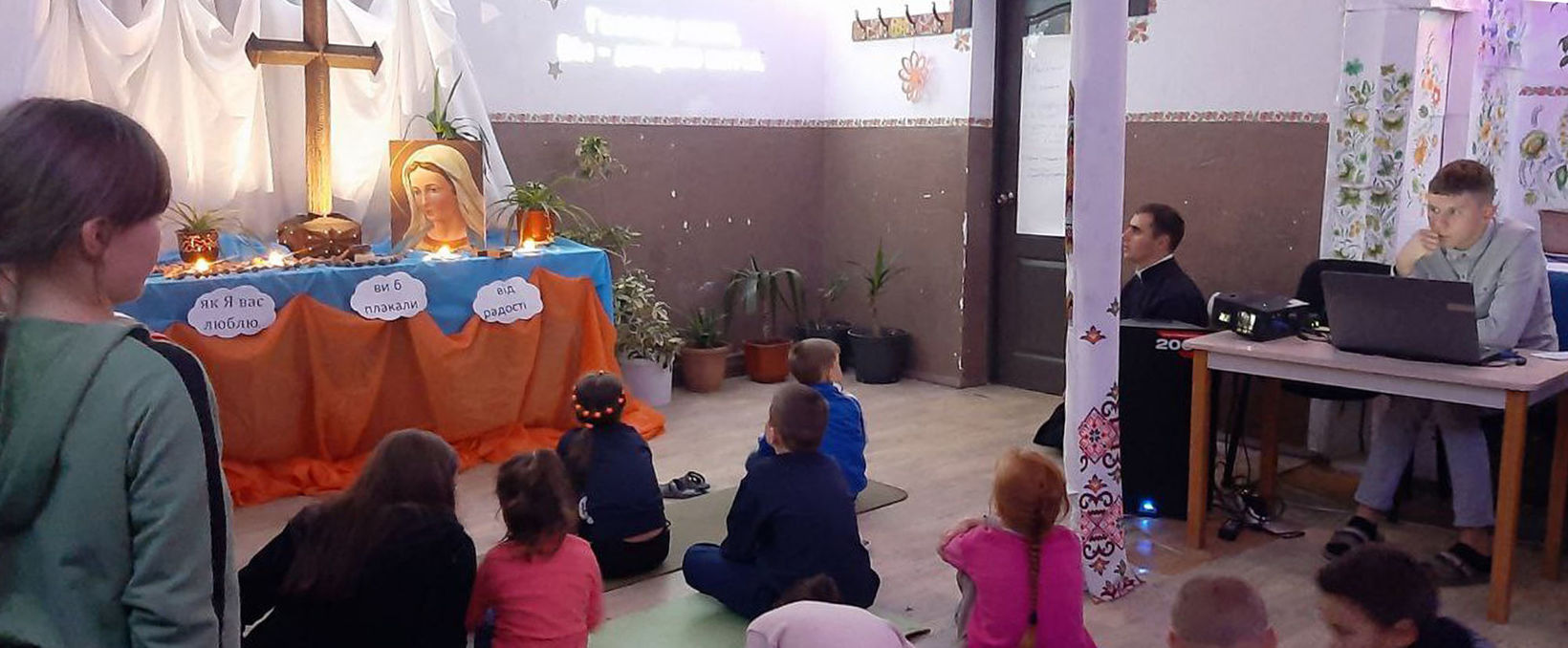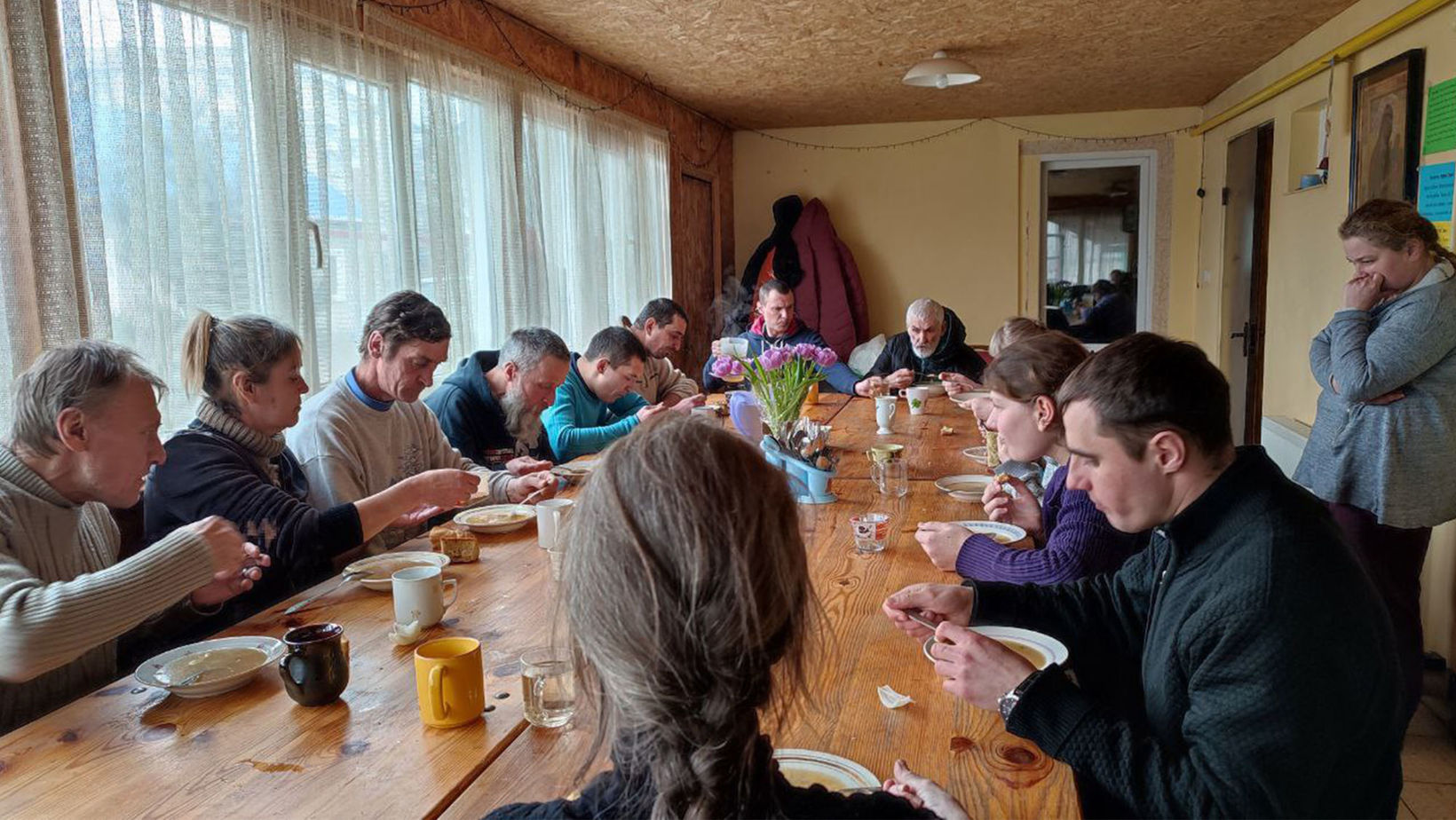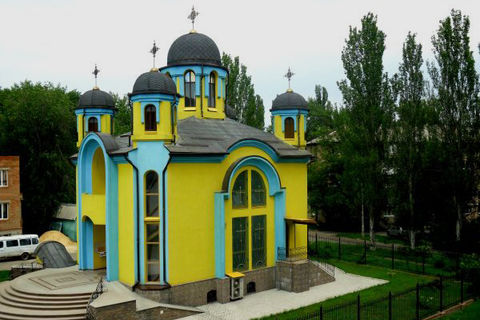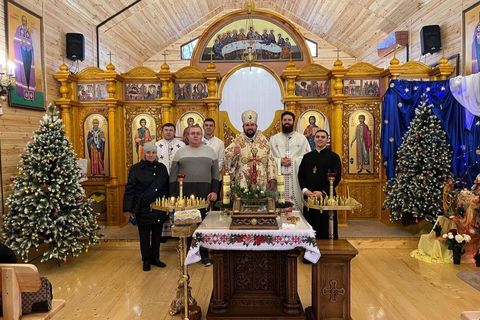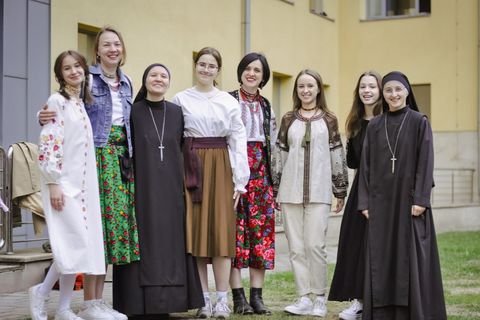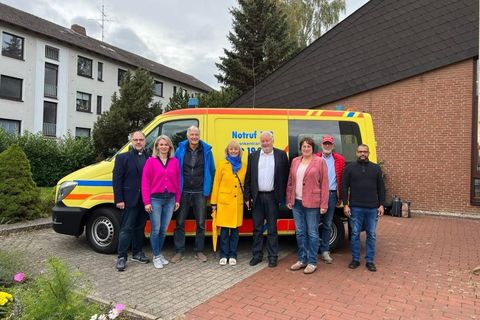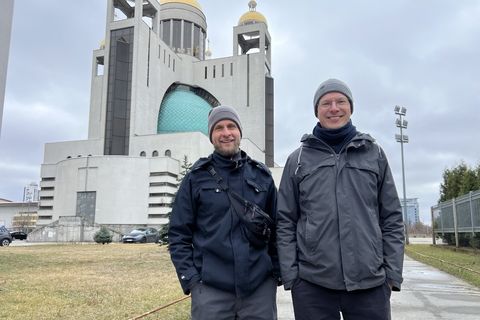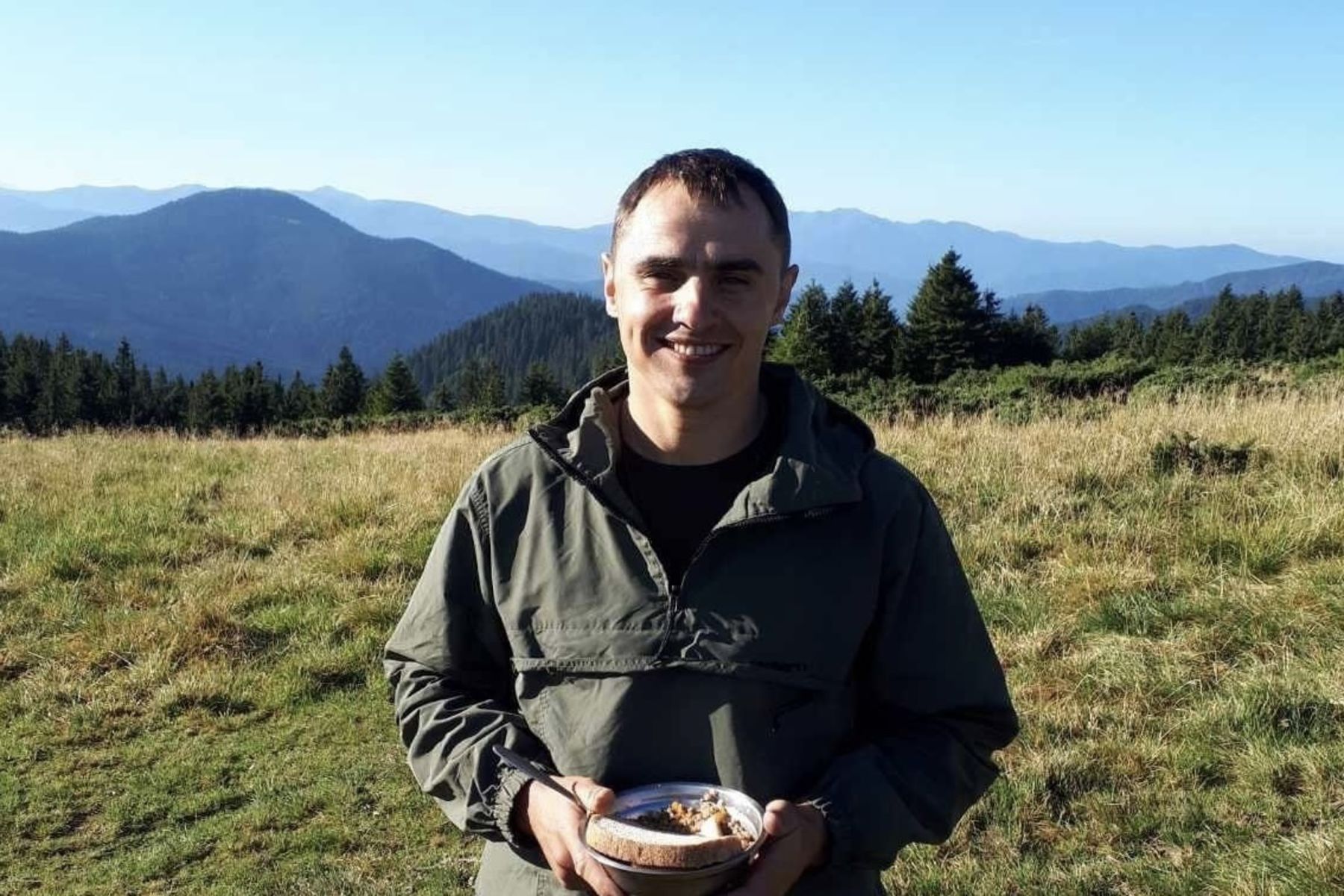
A Ukrainian Greek Catholic Priest from Melitopol: “I didn’t want to survive, I wanted to live to the fullest, even under the given circumstances.”
Father Oleksandr Bohomaz is a Ukrainian Greek Catholic priest in Melitopol: he was the pastor of the Nativity of the Blessed Virgin Mary Church there, and the pastor of three more parishes in the neighboring villages. We say he ‘was’ because on December 1, the occupant authorities deported him back to Ukraine, and thus, ‘closed’ the church.
With the beginning of the war, Father Sashko, as he was called in Melitopol, decided to stay with people who could not flee the occupied city. When offered to be evacuated several times in the course of nine months, Fr. Oleksandr would say, “There are so many people here who ask for confession, Holy Communion, weddings, baptisms. Who will serve them if I am not here?” Even today, he speaks about it with great pain.
Under incredibly challenging circumstances, pastoral duties, albeit still priority, are not exclusive part of service. All those months, the priests of Melitopol have been feeding and sheltering others, sharing and caring for them. And not only that. “I didn’t want to survive, I wanted to live to the fullest, even under the given circumstances,” Fr. Sashko recalls his thoughts in the darkest times. Then he adds, “And I would do my best so that others could live alike despite everything, so that they would not lose their light, would not let in despair and hatred that eats away at the soul; so that they could rely on God, believe in the Armed Forces and Ukraine, and continue to love one another.”
Father talks about a prayer that gave comfort and strength to live another day in joy, gratitude and togetherness. “I prayed that the people who put their trust in God would not be ashamed… I asked, ‘God, show us your glory.’”
Father Oleksandr Bohomaz talks about these, perhaps the most difficult, but also the happiest nine months of life in closeness to God and people, in the “Open Church” program. He is joined by his teacher and mentor Father Petro Krenitskyi, with whom they served in occupied Melitopol.
Serving in Melitopol before the Great War
My name is Oleksandr Bohomaz. I was ordained in 2016, and since I have served in the city of Melitopol, until December 1, 2022. For three years, I was an assistant pastor to Father Petro Krenitskyi. I have learned a lot from him in the field of pastoral care, and for that I am deeply grateful. In the decade of his ministry in Melitopol, Father Petro founded many parishes. Later, when I became the pastor and administrator of the Nativity of the Blessed Virgin Mary Church, I served in four parishes: in Melitopol, in the villages of Polyanivka and Novovasylivka, and we also founded a new community in the village of Novomykolaivka, Melitopol district. Father Petro established yet another parish in Melitopol, so that there were two of them in our city. He also served in four parishes. Thus, we each had four.
Our life was busy: children and youth communities, Bible studies with parishioners; “Mothers in Prayer” and “Knights of Columbus” communities were active in all parishes, retreats were organized. Since 2011, every summer we would go on a pilgrimage from Melitopol to Snigurivka. It was attended by the locals, people from the Zaporizhzhia and Lviv regions, and from all over Ukraine. Guests would also come from the Czech Republic and Slovakia. As everywhere, there were challenges in Melitopol, and we learned to face and overcome them.
The First Days of the War
Until last minute, I would not believe there would be a war. Back in February, many people called urging me to leave. I laughed at such panic attacks and we lived our lives until the end.
At that time, ten people were staying with me in the rectory: two homeless people, four students, we had a small student dormitory there, and four missionaries from St. Paul the Apostle Missionary School in Krasyliv, Khmelnytskyy region. They were my closest collaborators.
For me, the war began on February 24 with explosions at the airfield and shelling. On the evening of the 23 rd, right before the invasion, I had a premonition that something was about to happen, there was some anxiety. When in the morning I heard the explosions, I thought, “And so it has begun…”.
Panic seized in the city, people were leaving, but our missionaries decided to stay to support the people as long as needed: some until the end of their mission year, and some even longer. Many parishioners decided to stay. At 1:00 a.m. that night, people flocked to us. There was a battle in the city, shelling, a tank exploded in the neighborhood. For some reason, people ran to us, even though we didn’t have a bomb shelter: there was only a basement in the church. But people came and gathered here…
I recall that on the evening of February 24, there were many faithful at the service. Our parish had about 50 people who would come on Sunday. That evening there were about 45. We were fervently praying as everything was flying over us: planes, rockets, missiles, shells, explosions thundered. I can’t understand why people didn’t think where to hide and how to save their lives; they prayed. I prayed along to support them. On Sunday, considerably more people gathered than usual. I could not start the Divine Liturgy; after “Blessed be the Kingdom” I broke into tears, and we all cried.
Late at night on February 24, I said goodbye to our territorial defense unit which had to retreat. Those were local men leaving the city with tears in their eyes. Obviously, it was extremely difficult. I remember that moment: I was driving home with the feeling that now our city is protected by God only.
We continued to pray. We would meet with the Interfaith Council every day at 11 a.m. in the city square and prayed for Ukraine. At the same time, pro-Ukrainian rallies were held, and we prayed. These prayers lasted until about the middle of August, when were forbidden to do іo. I was not there in happened, but a Protestant pastor was incarcerated for five days for organizing this prayer.
In the same way, people in the parish would come to us. There were those who left, and with those who stayed we became like a family. Number of those participating in daily services exceeded the average. We tried to support each other. New parishioners who came through the volunteer activities and social service at the parish joined us. We invited them to church services, read the Bible together, taught them to pray the Rosary, prepared them for confession and Eucharist. There were Sacraments of Matrimony and many baptisms administered. I don’t remember exactly but it was definitely around ten. And I won’t even remember the number of the first confessions.
Serving Under the Occupation
At some point, I realized that I was losing my inner strength and reserve. Every day, every evening, praying in the chapel before the Holy Mysteries, I would say, “Lord, I no longer have the strength, but let it be Your strength. You lead, because I no longer can.”
At one of the Interfaith Council meetings under the occupation, one of the pastors said, “Our goal now is to survive.” You know, I went home with such aftertaste, and thought that I didn’t want to survive, I wanted to live, even in given conditions. We did what we could. We ran three camps: in spring, summer and fall. A month before I was deported, we had had a wonderful youth camp. In the summer, I tried to take the children to the beach every other day. As Our Lady in Medjugorje requested, we honored the first Fatima Saturdays in Snihurivka, in our pilgrimage site. We couldn’t organize a pilgrimage, but we drove there and prayed.
Of course, I was offered to leave many times. But think about it: why does a mother get up at night to tend to a crying child? She could go to another room and rest, but she gets up because she loves the child. I became a priest because this is my response to my love for God and God’s love for me. I stayed there because I loved those people, and I do love them now. I exhausted my inner resources there, I no longer had inner strength, but I asked God for it and He rekindled it in my heart. This is something that you cannot experience in usual life; I cannot describe this feeling. I stayed because our people were there, both in the villages and in the city. Even in the last days, when Father Petro was already arrested and deported, on that Sunday, I tried to visit our parishes with services: I spent the whole week at the parishes where he served. I looked into people’s eyes and could see how grateful they were that I was staying. I remember conversations with our children: they saw many times how the Russian special services came to us (they didn’t call themselves) and interrogated me. It so happened that the children were with us at that time and saw my mood after the interrogations. They prayed fervently for me, and they would ask, “Father, will you leave too?”. I’d say, “No, I’m staying.” If I had not been forcibly deported, I would have stayed there; that was my decision.
Our relations with the occupants were different. At the checkpoints, they would humiliate us, but sometimes we managed to compromise. Once I thought I was going to be shot. Seven times the special services visited me. They talked to me as if I were something lowest of this world, and they were the hosts in my house, the church, and in the parish. It was not pleasant, but I don’t hold a grudge against them. Yes, they took away a car, a van in which we would meet with children, caroled with parishioners, and held various events. I am very grateful to everyone who contributed to the purchase; we managed to collect the funds in just two weeks and bought it for the parish. Children and adults were so happy, but it was confiscated. Well, what can I say? Let God intervene and judge. I don’t want to remain in the dark, I don’t want to investigate who is to blame. Obviously, I was denounced and reported; clearly, someone complained. Every day, we would feed up to 30 homeless people, and someone did report me: during the interrogations, I heard the quotes which made it clear—someone was passing information about me. I don’t even want to find out who it was: let God take care of it, I want to live in the light.
Where do people under the occupation get information about what is happening? Some have the Internet and watch the news there, with the help of VPN applications. Some have satellite TV and get the news from there. Everyone decides what to watch. I don’t follow Russian news and I don’t listen to Russian radio. Those who did listen, fell into depression, and then realized that it was better not to do it. Unfortunately, there were those who got hooked on this news and became zombified, because the information in the Russian news is completely falsified and distorted. Some people would say, “In the morning, I watch His Beatitude Svyatoslav’s address, and I don’t need any more news, this is enough for me: His Beatitude said everything that is necessary.” Indeed, it was enough then and it is enough now.
Deportation
On Friday morning, I had a ‘masquerade’ with machine guns and such. The interrogation lasted for an hour. They loaded me into a car, took me to Vasylivka, and then I walked to our territory.
Interesting was my meeting the first Ukrainian soldier. I saw a soldier coming out between the destroyed houses and started calling him. He saw me, looked closely, shouted, “Father Sashko!” and ran to meet me. As he was running, I recognized that that was our parishioner Vladyk Shpyrka, a boy who was our student, who participated in our camps, a boy from my village! It was such an unexpected, bright meeting. Had I been passing through that place a minute later or earlier, I would not have met him! But the Lord decided otherwise, and I found myself on the free territory.
The first two or three days I just cried remembering those people who remained there. I did not visit the sick on the first Friday, but I entrusted them to God. I knew that Jesus is the Good Shepherd, and my mission there is over. He simply touched me in a miraculous way, I was not beaten. It was as if He pulled me out by the hair, like a prophet, and saved me. I did not deserve the grace and honor to be with those people who suffered there. It was very difficult for me, but I realized that this was a great honor for me.
I am asking you to pray for the fathers from Berdyansk, who are currently suffering in those torture camps, and we do not really know what is going on with them. I didn’t deserve to be saved by God: I don’t know why me. But He decided so and for some reason spared me.
Biographical Note
Oleksandr Bohomaz was born and grew up in the village of Nizhny Sirohozy (Henichesk District, Kherson Oblast). He studied at the Melitopol Pedagogical University, then at the Kyiv Theological Seminary of the Three Holy Hierarchs. In May 2016, he was ordained a priest of the Donetsk Exarchate in Melitopol by Bishop Stepan Menyok. He was appointed an assistant pastor, and then an administrator of the Nativity of the Blessed Virgin Mary Church in Melitopol. He also served at three more parishes in the surrounding villages. He served along with his father Petro Krenitskyi, whom he calls his teacher. After the occupation, Fr. Oleksandr remained in Melitopol at the place of his service. As a Ukrainian Greek Catholic priest, he was persecuted by the occupation authorities. He was offered to get a Russian passport seven times. Special pressure was put on him and other priests during the pseudo-referendum in the summer 2022. On December 1, he was arrested and deported to Ukraine.
Text — Oksana Kozak,Translation — Iryna Ivankovych,
UGCC Department for Information

